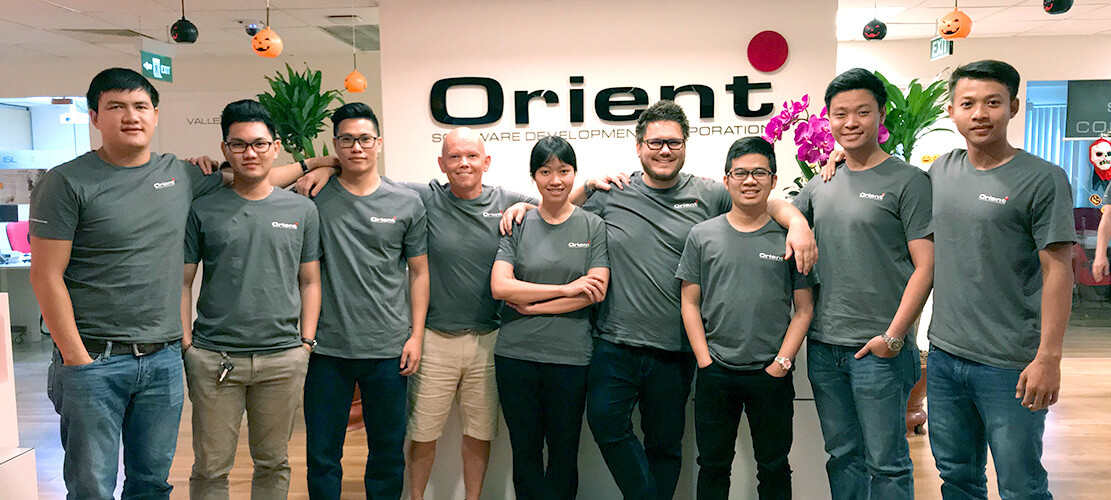The land of potential is Vietnam

Content Map
More chaptersEven though quality is always considered over costs, but the biggest question is: How to achieve both? Vietnam can offer the perfect solution to your equation.
Price of Doing Business: Why Software Outsourcing Costs Less In Vietnam
Why do we outsource? It’s not because we love transcontinental airline flights, or listening to foreign accents, or because we get to make yearly “fact-finding” trips that double as golf junkets (OK, that part isn’t bad).
The main reason software companies choose to outsource, however, is to save money. It’s not just a matter of finding the cheapest place to do business, of course — you get what you pay for, as the saying goes, and endless lines of bug-ridden code are useless even at bargain prices.
So where can companies find software outsourcing partners that are competent AND affordable? For many years the default answer was “India” or “China”, but as those markets have developed into more advanced levels, they no longer boast the low labor costs and favorable business climates they once did.
Vietnam, however, is a destination on the rise for software outsourcing. Its recent ascent to the top of the Cushman & Wakefield Business Process Outsourcing (BPO) & Shared Service Location Index (discussed in detail here Vietnam Ranked #1 Global Outsourcing Destination by C&W) was fueled largely by its remarkably low costs.
Let’s take a look at some of the numbers driving Vietnam’s rise to the top of software outsourcing destinations.
People Costs
Vietnam’s vast population (well over 90 million people) has helped the country make great strides in terms of gross national product (GNP) over the past several years. Since 2010, the national income has increased by nearly US$100 billion.
However, salaries remain low compared to Western countries or more developed Asian neighbors such as South Korea, Japan, and Singapore. The average Vietnamese worker earns around US$2,000 a year, a substantial increase over years past yet still less than workers in nearby countries such as Thailand and Indonesia. The low cost of living in Vietnam means that companies can save substantially on labor expenses.

Skilled IT workers, of course, make more than the average construction worker. Recent studies indicate that an experienced software development professional can expect to earn several times more the average salary — which explains the eagerness of young Vietnamese to hone their IT skills in hopes of making lucrative money.
Still, a talented developer in Vietnam costs much, much less than a similarly talented developer in Norway. Overall, things are just cheaper in Vietnam: a coffee is less than US$0.50 a cup. When’s the last time you saw that kind of deal at your local Starbucks?
Paper Costs
Foreign companies are often wary of outsourcing because they fear (rightly) that hidden costs can quickly turn a bargain locale into a money pit. A low cost of local labor is much less attractive if foreign investors have to navigate byzantine mazes of bureaucracy with expensive payments to achieve the simplest of goals.
In Vietnam, foreign software companies with solid local partners will find that it is easy and affordable to set up shop. According to the Doing Business 2015 report from the World Bank Group, the business license tax in Vietnam costs less than US$50.
The software outsourcing industry receives especially favorable treatment in terms of tax costs. While the standard corporate income tax in Vietnam is 25% percent, companies involved with software development can qualify for rates of only 10% for up to fifteen years. There are also a wide array of tax breaks, preferential rates, and tax holidays available for companies looking to make substantial investments in the country.
The demand for high-tech enterprises such as software development outsourcing means that the government of Vietnam is willing to dangle enticing carrots in front of foreign IT companies to help the country develop. The results have already proved mutually beneficial – when Intel was seeking support from the government to build its US$1 billion testing and development facility in 2010, all it took was a US$7 million pledge to start a scholarship project to train prospective engineers in the U.S, according to Techonomy.

In Vietnam, a little investment can go a long way.
Looking Forward
According to official government estimates, Vietnam has over 170,000 people currently enrolled in IT-related university fields. Software development companies seeking to outsource key functions to Vietnam will find a vast, well-trained work force that makes a fraction of their European, American, or East Asian counterparts. It’s a pipeline that won’t be running dry any time soon — low labor costs are predicted to be a part of Vietnam’s economic landscape for years to come.
As the government seeks to stimulate foreign investment and develop a technologically advanced infrastructure, the business climate is only expected to improve for foreign software development companies in Vietnam. By providing generous incentives to foreign investors, Vietnam hopes to create a comfortable business climate that will allow foreign expertise and capital to help boost a strong and growing economy.
For smart business, now is the time to buy low on software outsourcing in Vietnam.








